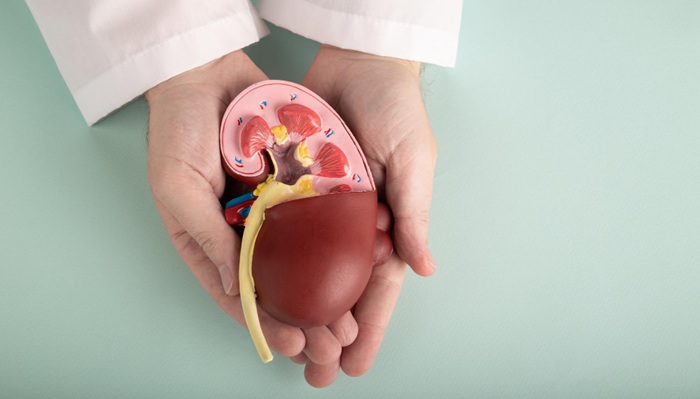A kidney transplant is generally considered the best treatment option for managing kidney failure in patients who are healthy enough to undergo major surgery. However, this decision can only be made if the overall benefits clearly outweigh the potential risks.
Kidney transplantation is regarded as the most effective therapy because it can replace kidney function more naturally compared to dialysis. This procedure allows patients to return to their normal daily activities with an improved quality of life. Even so, each patient must go through a thorough medical evaluation to ensure that their health condition is suitable for surgery and capable of providing optimal long-term outcomes. Doctors will also consider additional factors such as medical history, response to previous treatments, and the risk of complications after surgery.
Contents
Requirements and Criteria for Patients Eligible for Kidney Transplantation
To be eligible for a kidney transplant, a patient must meet several medical and physical readiness criteria:
1. Having Long-Term Chronic Kidney Disease
Patients must be diagnosed with chronic kidney disease that causes permanent loss of kidney function. This condition occurs when the kidneys can no longer perform their essential tasks, such as filtering waste and maintaining fluid balance. At this stage, a kidney transplant becomes one of the most effective treatment options because it can fully replace kidney function. Doctors will assess the severity of the disease through laboratory tests, medical history, and the patient’s clinical progression over time.
2. Having a Stable Health Condition to Undergo Major Surgery
A kidney transplant is a major surgical procedure that requires strong physical condition and medical stability. Patients must be free from active severe infections, serious heart problems, or other conditions that may increase the risk of complications during or after surgery. A comprehensive evaluation is carried out by the medical team, including heart and lung assessments and complete blood tests. The goal is to ensure that the patient’s body can accept the new kidney and recover properly after surgery.
3. A Good Chance of Transplant Success
Not all medical conditions allow a kidney transplant to be effective. Doctors will evaluate donor–recipient compatibility, including tissue matching (HLA), blood type compatibility, and the potential for organ rejection. Additionally, the patient’s medical history is reviewed to predict long-term success. If the likelihood of success is low, dialysis may remain the primary recommended treatment.
4. Ability to Take Daily Medications After Transplant, Including Immunosuppressants
After a kidney transplant, patients must take long-term medications, especially immunosuppressants. These medicines are essential to prevent the body from rejecting the new kidney. Medication must be taken consistently every day without fail, as missing doses can lead to organ rejection, which may be life-threatening.
Therefore, patients must demonstrate commitment, discipline, and a clear understanding of the importance of treatment adherence. The medical team will provide education on medication schedules, possible side effects, and how to manage health after surgery.
Who Is Not Eligible for a Kidney Transplant?
The following conditions or factors may disqualify someone from receiving a kidney transplant:
- Having cancer that may worsen after transplantation, as immunosuppressant medications can increase the risk of recurrence or spread.
- Having a severe active infection that must be treated fully before transplantation is considered.
- Inability to safely take immunosuppressant medications, which are required for life after the transplant.
- Presence of medical conditions that make the transplant surgically unsafe.
- Severe cardiopulmonary disease (serious lung and heart disorders).
- Severe pulmonary hypertension—extremely high blood pressure in the lung arteries and right side of the heart. A right ventricle systolic pressure (RVSP) higher than 50 mmHg disqualifies transplantation.
- Long-term dependence on supplemental oxygen.
- Other significant health problems (comorbidities) that reduce the benefits of transplantation, including overall survival or kidney graft function.
- Life expectancy of less than five years, even if the transplant is successful.
- Extreme obesity, with a body mass index (BMI) over 45.
- Inability to comply with post-transplant medical management and routine follow-up care.
- Lack of a social support system to assist during the transplantation process and recovery.
- Active high-risk drug or alcohol use.
- Severe mental health conditions that may interfere with adherence to post-transplant treatment and care plans.
- A personal decision not to undergo transplantation.
- Kidney disease that is not yet severe enough to require a transplant.
Kidney Transplant Services at Mandaya Royal Puri Hospital
The kidney transplant services at Mandaya Royal Puri Hospital are designed as comprehensive medical care that prioritizes patient safety, effectiveness, and comfort. The hospital is equipped with modern medical facilities and high-standard operating rooms, enabling transplant procedures to be performed with precision and optimal success rates. Each patient undergoes a complete evaluation, including kidney function tests, heart and lung assessments, and donor compatibility studies, to ensure that the transplant can be safely performed.
The transplant team at Mandaya Royal Puri Hospital consists of multidisciplinary specialists, including nephrologists, urologists, transplant surgeons, anesthesiologists, and infectious disease specialists. This collaborative approach ensures that every aspect of the patient’s medical condition is managed thoroughly—from preoperative preparation to surgery and intensive postoperative monitoring. The medical team also provides comprehensive education regarding immunosuppressant use and the lifestyle adjustments required after transplantation to maximize long-term outcomes.
Mandaya Royal Puri Hospital also offers complete patient and family support services, including counseling, donor coordination, and assistance throughout the recovery period. With advanced monitoring systems and comfortable inpatient facilities, patients can go through the postoperative phase with greater ease and confidence.
For easier access to Mandaya Royal Puri Hospital, you may use the WhatsApp Chat feature, Book Appointment, or the Care Dokter app, available on Google Play and the App Store, to check queue numbers and get complete information regarding your visit.



